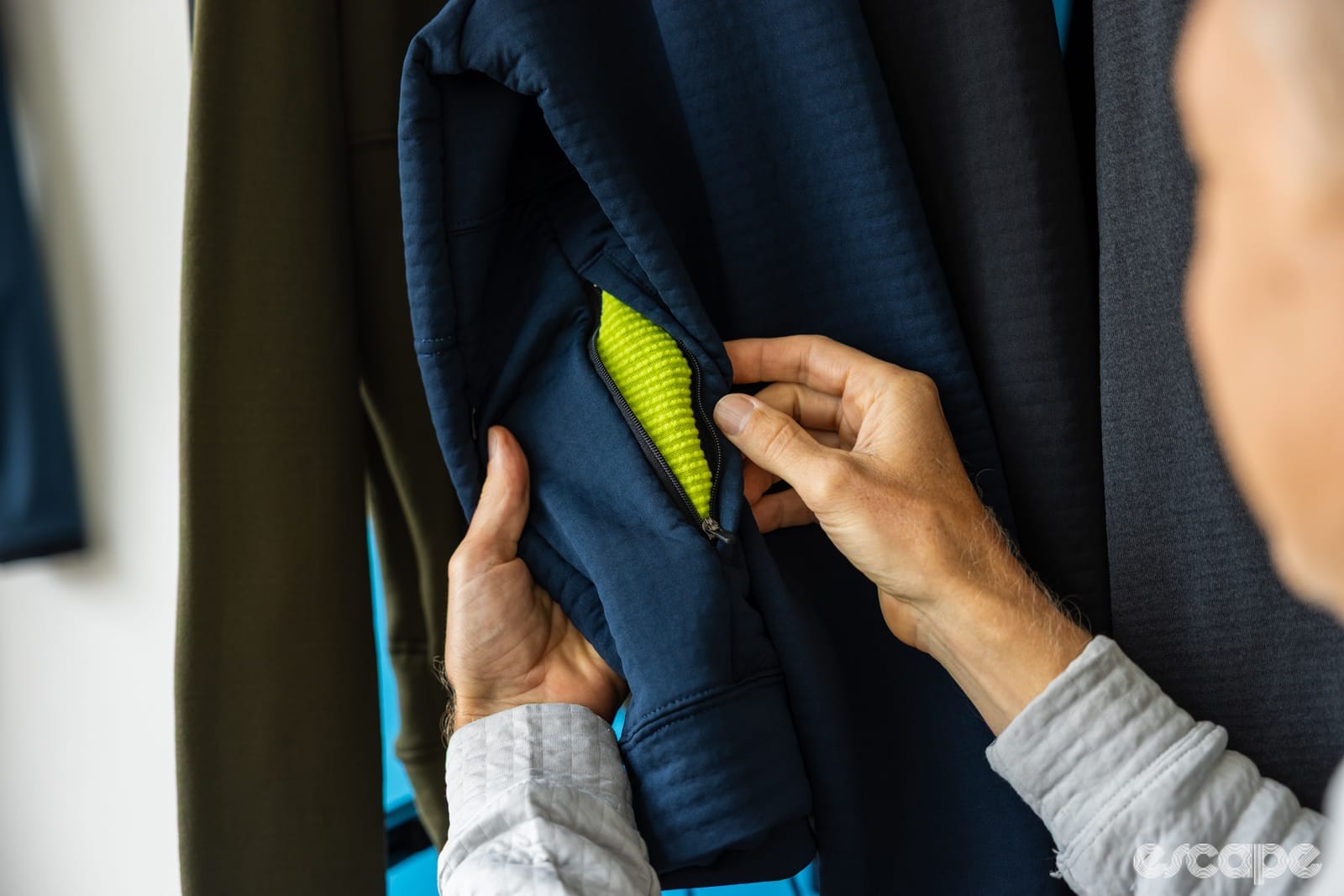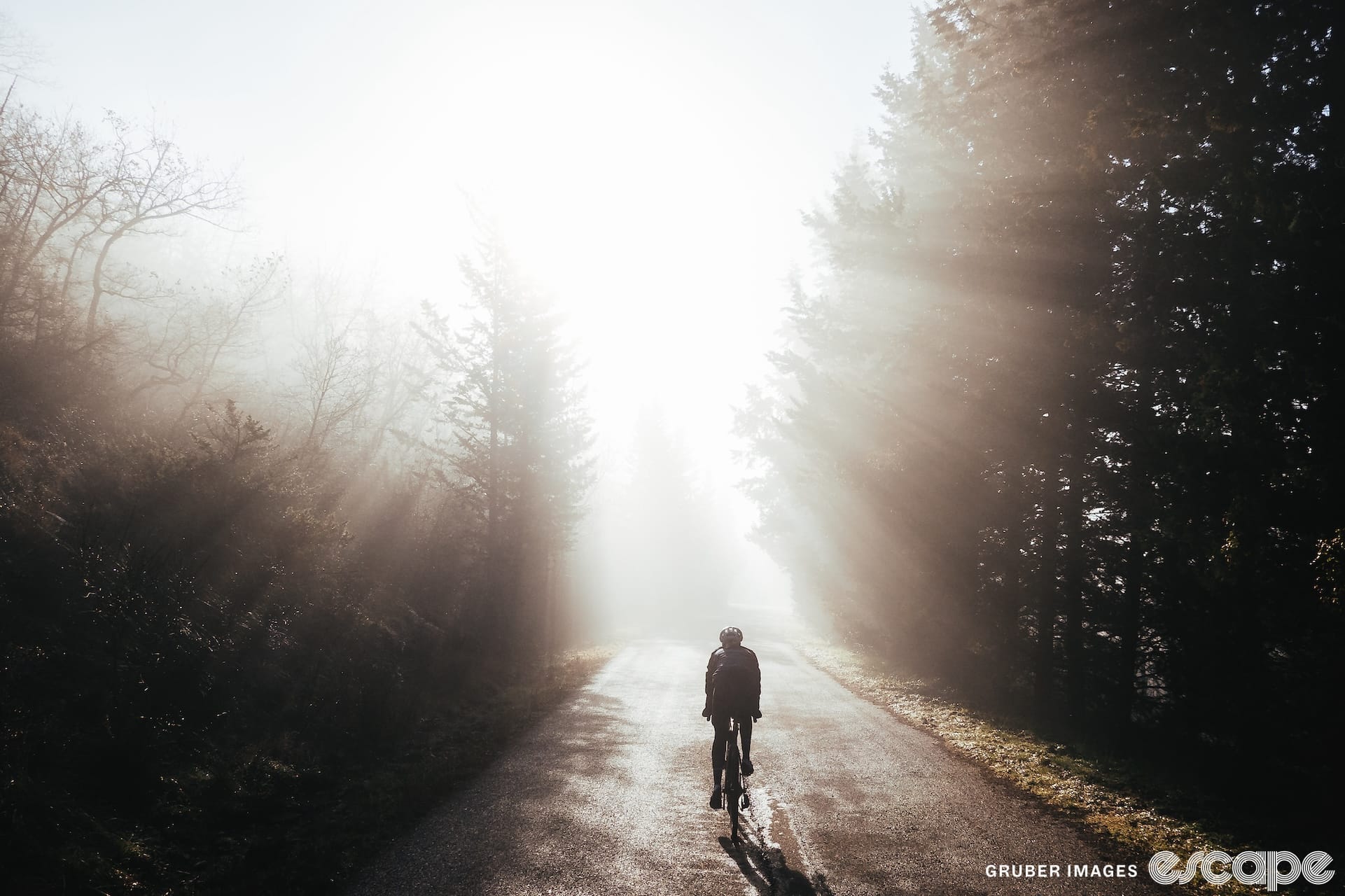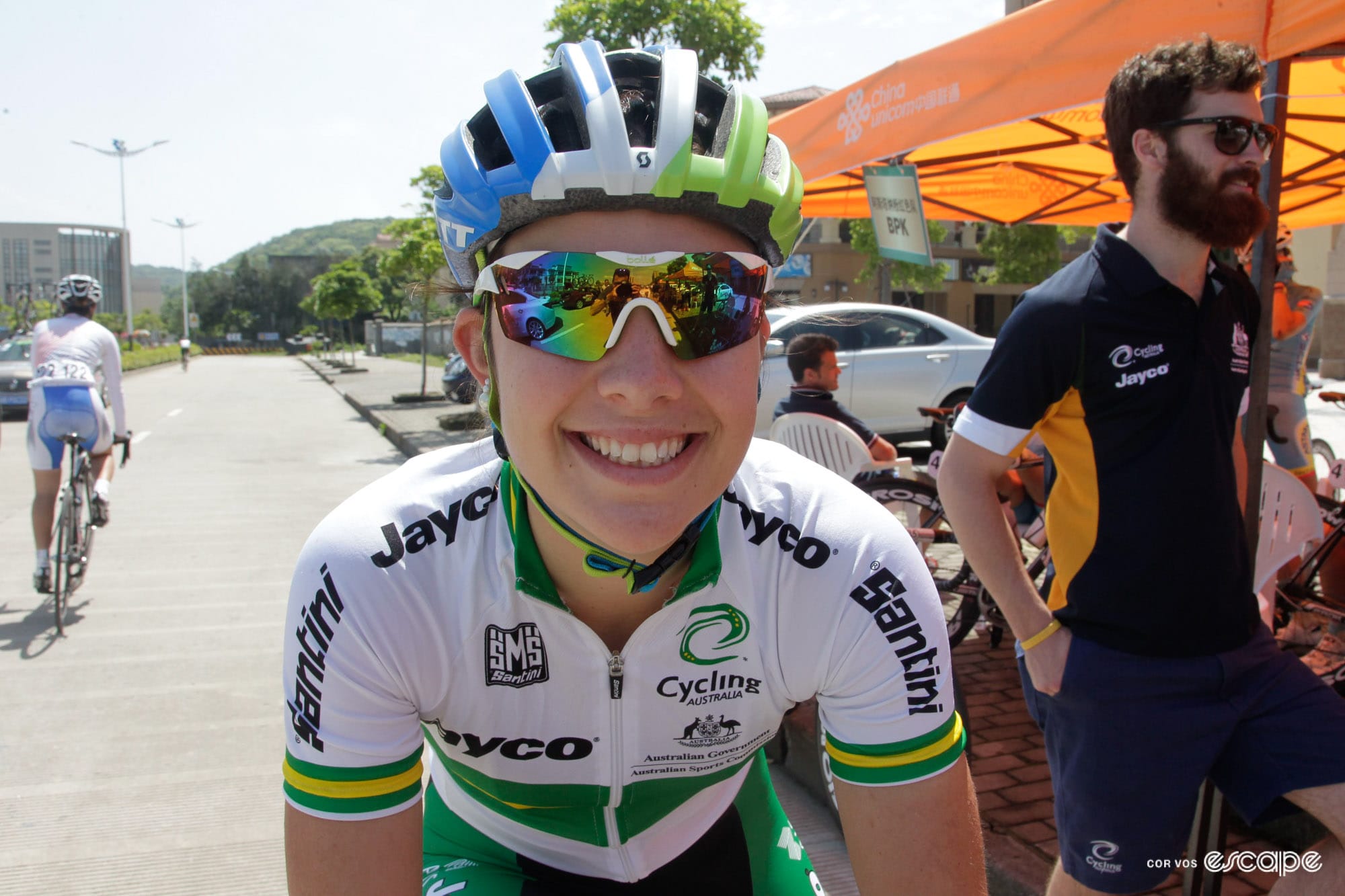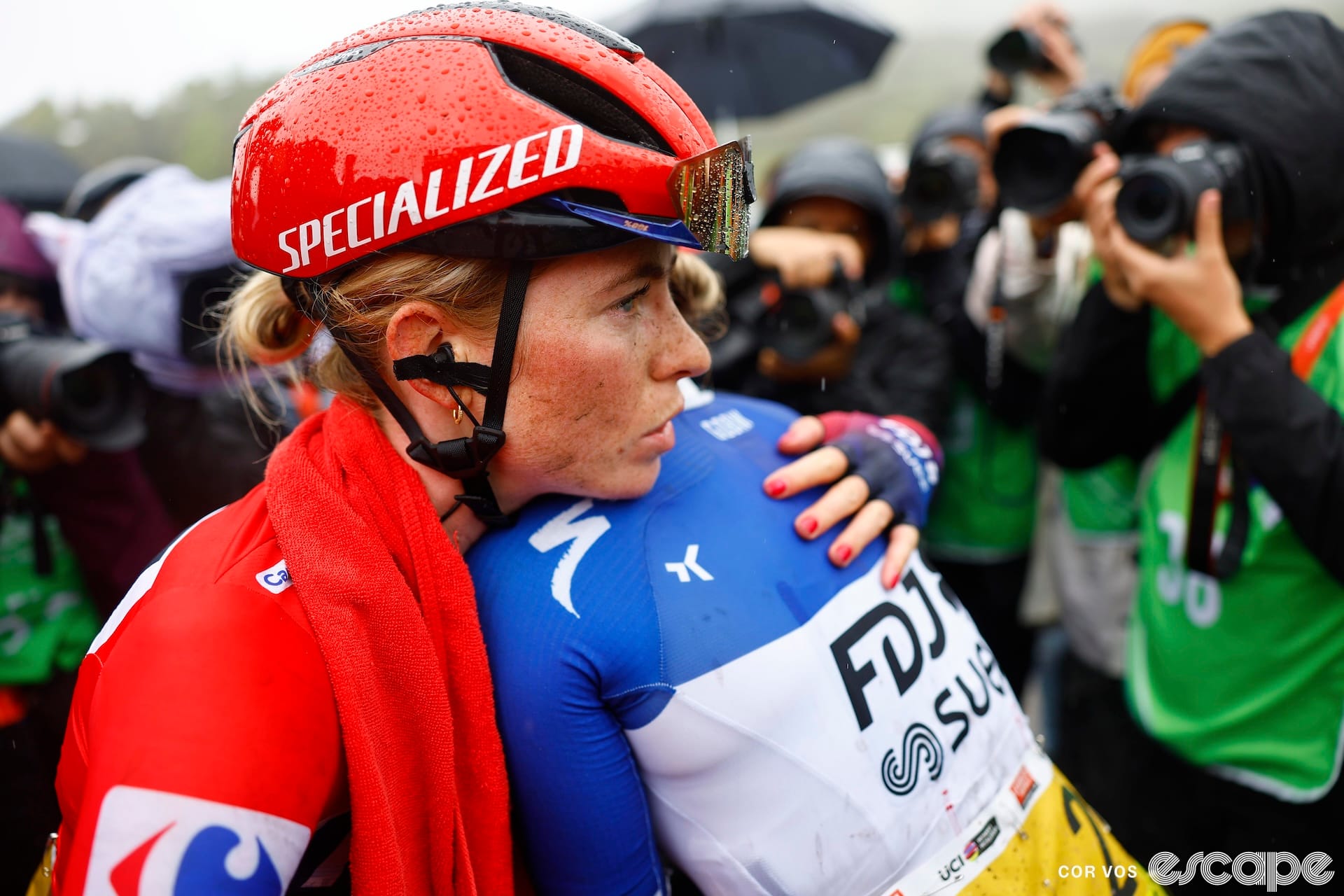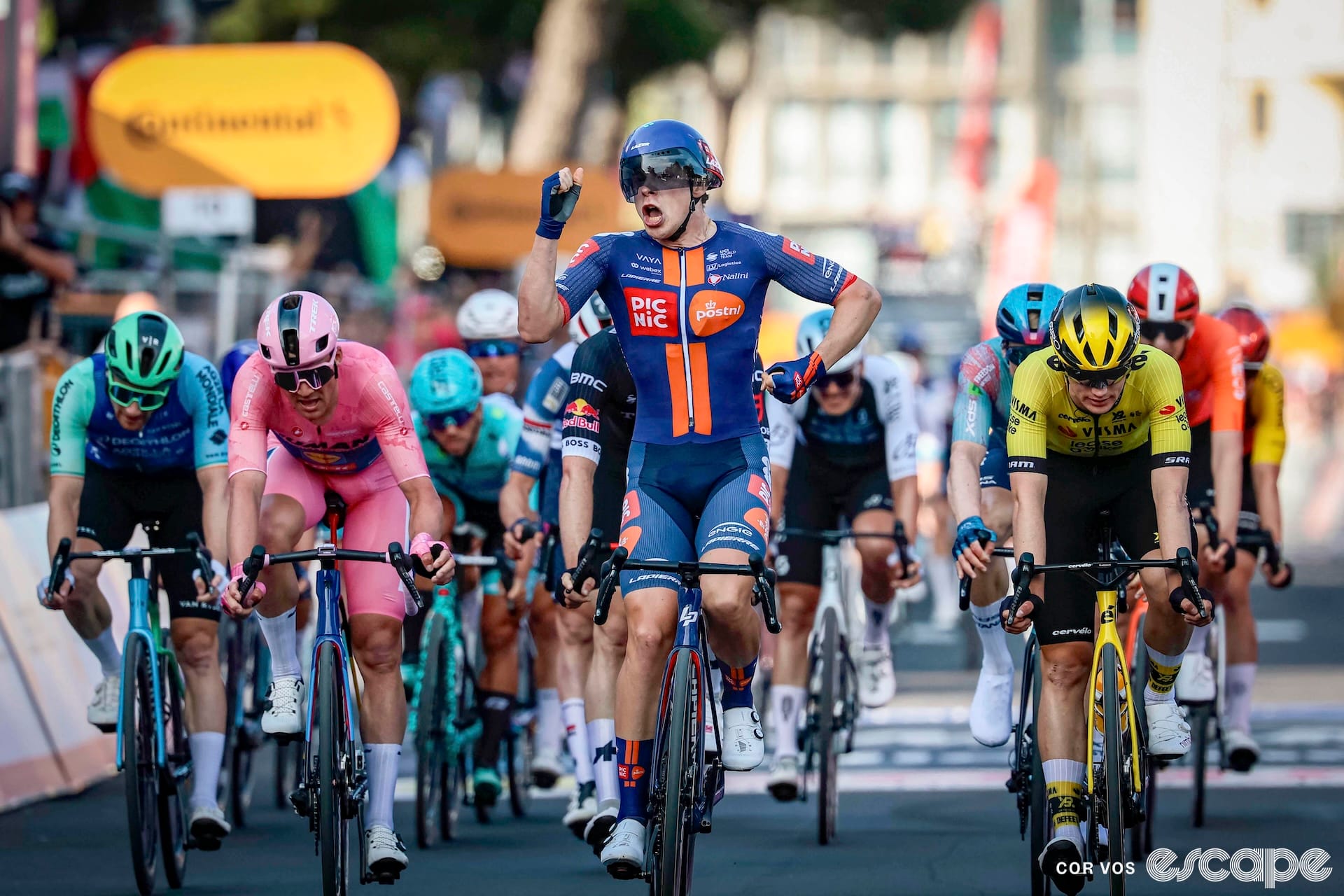When Susan Cronin, owner of Champion System USA, saw the news of a 90-day tariff reduction between the US and China, she anxiously awaited the details. But the deal couldn’t undo the damage already felt across the cycling apparel industry.
"It does not fix the initial chaos created," Cronin told Escape Collective. "I can never get back the time required to figure out what to do, how to communicate that, and try to plan. I don’t expect to recover all the sales we have lost due to the tariff surcharge we had to add, either. A lot of damage is already done."
Champion System USA is not alone in feeling that among the cycling apparel industry, where the temporary rollback of triple-digit tariffs to 30% on Chinese goods hasn’t undone the uncertainty, logistical upheaval, and missed opportunities brands have faced since the beginning of April. And while the short-term relief has given some breathing room, companies continue to face hard decisions.
This story spans weeks of reporting — from the days after Trump’s April ‘Liberation Day’ tariffs to the recent rollback announcement. Across the board, the message from the industry has been the same: The uncertainty and policy shifts have already had a negative impact, and 90 days, months or even a whole presidential term may not be enough to change that.
The irreversible disruption
The tariff disruption has hit international and American brands alike. Like many brand founders and CEOs, Matt Quann of Ornot, is proud that its Magic Shell jacket, one of the brand’s most technical pieces, is made close to home, in San Francisco. But even a product like this, assembled locally, isn’t immune to the ripple effects of global trade policy. In fact, the days of making Magic Shell – or any cycling apparel – in the US might be numbered.
"We make them just south of San Francisco; we can ride our bikes there," Quann said, speaking to Escape Collective about their factory partner. "This place is super high tech," he added. That’s essential for a product like the Magic Shell, which isn’t actually sewn. "It’s ultrasonically bonded together and then taped," Quann explains, and adds that there aren’t many places in the US that have the equipment and technological skill to do that.
Even with tariffs temporarily lowered, the manufacturing of high-tech garments remains precarious and expensive, especially when materials like Polartec’s Power Shield Pro are milled exclusively in China. This is a waterproof and breathable fabric that’s somewhat magical itself, and hits a lot of Ornot’s goals: it's soft, stretchy, quiet, and made of 48% bio-based nylon, with a PFAS-free membrane and DWR coating. At US$285, the Magic Shell is already a premium item before any tariffs, and as Quann explains, there is no way of making it 100% American.
Like what you're reading? Great; please consider helping us bring it to you. Escape Collective is 100% membership-funded, with no advertising and no affiliate links in our product reviews. Our work is only possible through your support.
Here, we get to the biggest hurdle the industry is facing. According to numbers from the US Trade & Tariff Data, most cycling-specific garments imported into the US originate from Vietnam, India, and China. In the escalating tariff war between US and China, items like cycling jerseys from the Asian manufacturing giant were hit with tariffs as high as 185%.
"It’s really expensive just for the fabric," Quann said, and those costs have only increased with every round of tariffs. The first set of duties on Chinese imports, which president Trump instituted in his first term in 2018 and president Biden sustained, already increased Ornot’s materials costs moderately. But the latest round, announced April 2, escalated the figure to 185% – until recently, when a deal was reached between the two countries to lower the rate to a still-steep 30%.
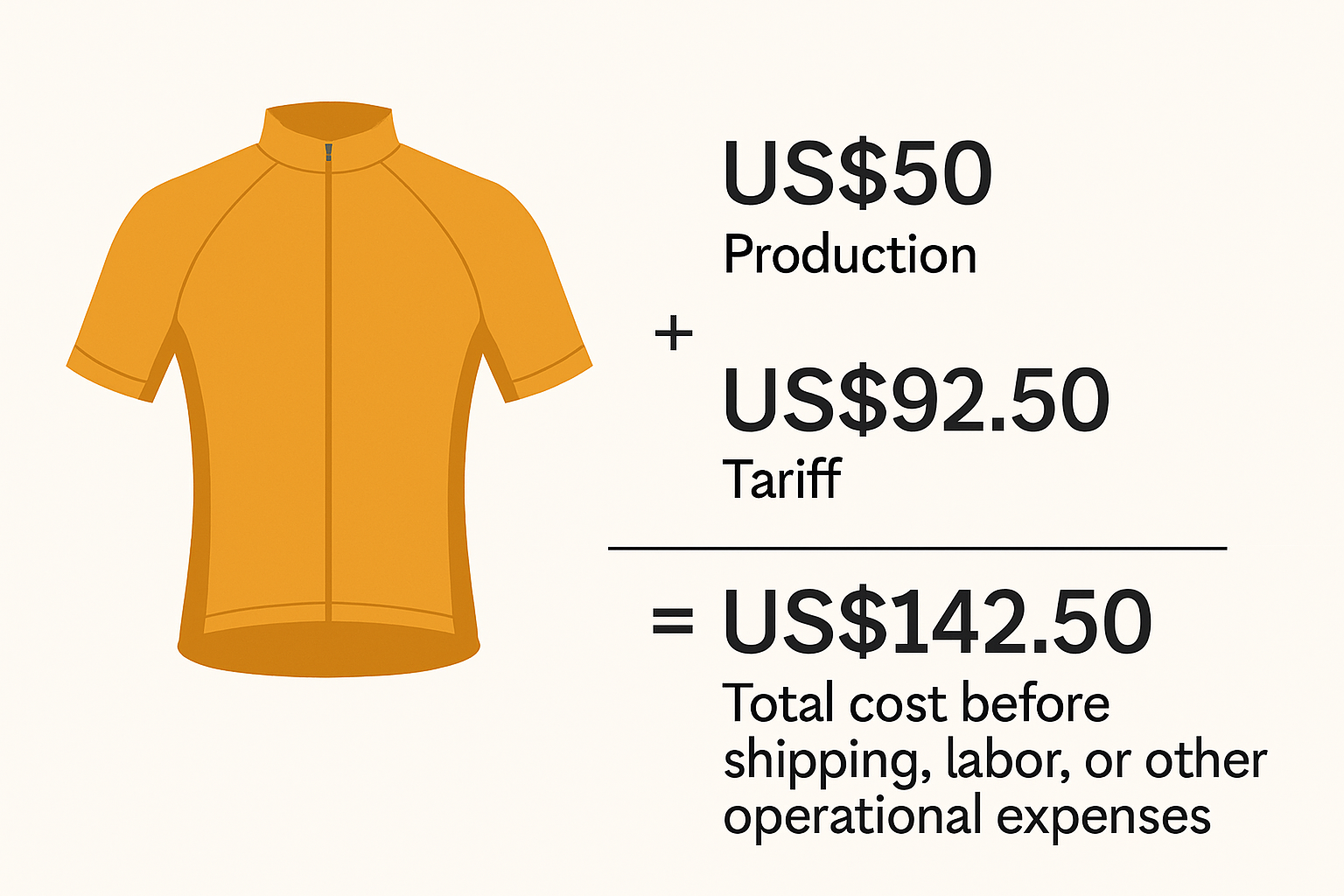
"Honestly, this level of tariffs cannot be sustained," Susan Cronin, owner of Champion System USA, told Escape when the tariff still stood at 185%. "That's not going to work. So I'm hopeful within the next few weeks that we can get to a more reasonable level." But now, even with a more reasonable level in temporary effect, Champion and other brands face a small window in which to make plans, which will likely have to change again amid the near-constant policy shifts.
Ornot and Champion System USA are not isolated in facing this dilemma with tariffs and also crucially, the small shipments that used to fall within the now removed de minimise exemption. Much of the bike industry’s attention around the levies has focused on bikes and components, but soft goods such as cycling apparel, shoes, and accessories are facing consequences just as severe, if not more.
Did we do a good job with this story?

